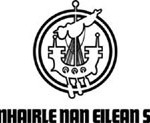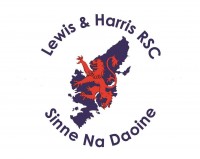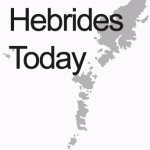 July is scam awareness month, during which Trading Standards departments and Citizens Advice Bureaus (CABs) throughout the UK will be highlighting current scam activity and giving advice to consumers on how to tackle them. A scam is a scheme to con people out of money, and it is believed that more than half of consumers in the UK have been exposed to a scam. Each year more than 3 million consumers fall prey to scammers, and it is estimated that annually £5 billion is lost to mass marketing scams via phone , e mails and post.
July is scam awareness month, during which Trading Standards departments and Citizens Advice Bureaus (CABs) throughout the UK will be highlighting current scam activity and giving advice to consumers on how to tackle them. A scam is a scheme to con people out of money, and it is believed that more than half of consumers in the UK have been exposed to a scam. Each year more than 3 million consumers fall prey to scammers, and it is estimated that annually £5 billion is lost to mass marketing scams via phone , e mails and post.
The four main scam activities Scams Awareness Month will be targeting are
Telephone scams
Online scams
Mail scams
Doorstep scams
Telephone scams
Have you been in a situation where you’ve just sat down for your tea and the phone rings, the caller display shows a local number suffix, but you answer to find it’s a cold caller telling you you’re entitled to PPI refund, free government insulation or an insurance injury claim? These kinds of calls are known as vishing scams, very often the caller doesn’t know anything about you apart from your name address and telephone number. But they will make it sound as though you have been specifically chosen to receive their call. Evidence suggests that losses to these vishing (phone) scams more than trebled in 2014 to nearly £24 million.
CNES Trading Standards have had complaints regarding callers impersonating banks or service companies for example power companies and telephone providers, in order to obtain bank account details and pin numbers. The caller may ask you to phone you and say there’s an urgent problem with your account, or that a recent payment has failed, this is designed to put pressure on you to pay immediately.
Trading standards have also had many computer software service scams reported over the last few years. This is where the victim is cold called and told that there is a problem with their computer . the victim is talked through a series of logon steps in order for the fraudster to gain remote access to their computer, they are then charged fees .The criminals may also leave malware (“Malware” is a term for any software that gets installed on your machine and performs unwanted tasks, often for some third party’s benefit.) on your computer, or they may be able to gain access to personal financial information stored on your computer.
Trading Standards are currently receiving reports that telephone scammers are using number spoofing technology to mimic a local number which will show up on the victims caller ID display. This makes it more likely that the recipient will answer the call thinking it is a local number calling them.
Top Tips for dealing with telephone scams!
Contacted out of the blue? – Be suspicious
If in doubt don’t reply. Bin it, delete it or hang up.
If it sounds too good to be true then it probably is!
Genuine computer firms do not call to help you fix your computer.
Your bank will never phone to ask you for your pin number or an online banking password.
Your bank will never send anyone to your home to collect cash, your bank or credit card, your chequebook, or your pin.
Your banks fraud section will never ask you to transfer money to a new account.
If you suspect a phone scam-Use another line or, wait 5 minutes to make sure the line is clear before you call your bank.
Don’t suffer in silence- speak out about scams. It is estimated that only 5% of scams are ever reported. For more tips on scams please visit www.citizensadvice.org.uk
Not Sure?- Check with a trusted friend, relative or neighbour.
Report Scams to CNES Trading Standards on 01851 822694
// //
Hebrides Today brings you the latest news from the Western Isles




 Welcome
Welcome Commission Is Invited to Meet With Crofting JCC
Commission Is Invited to Meet With Crofting JCC Isle of Harris Rural Manifesto Event
Isle of Harris Rural Manifesto Event CalMac goes Gaelic with social media
CalMac goes Gaelic with social media ALLAN MEETS WITH GRAZINGS COMMITTEES OVER CONCERNS
ALLAN MEETS WITH GRAZINGS COMMITTEES OVER CONCERNS Founding ministers of Hebrides Salvation Army return to celebrate church’s 30th birthday
Founding ministers of Hebrides Salvation Army return to celebrate church’s 30th birthday Double success for Gaelic radio at media awards
Double success for Gaelic radio at media awards SHEPD invites island communities to make plans to weather the storms
SHEPD invites island communities to make plans to weather the storms
Leave a Reply